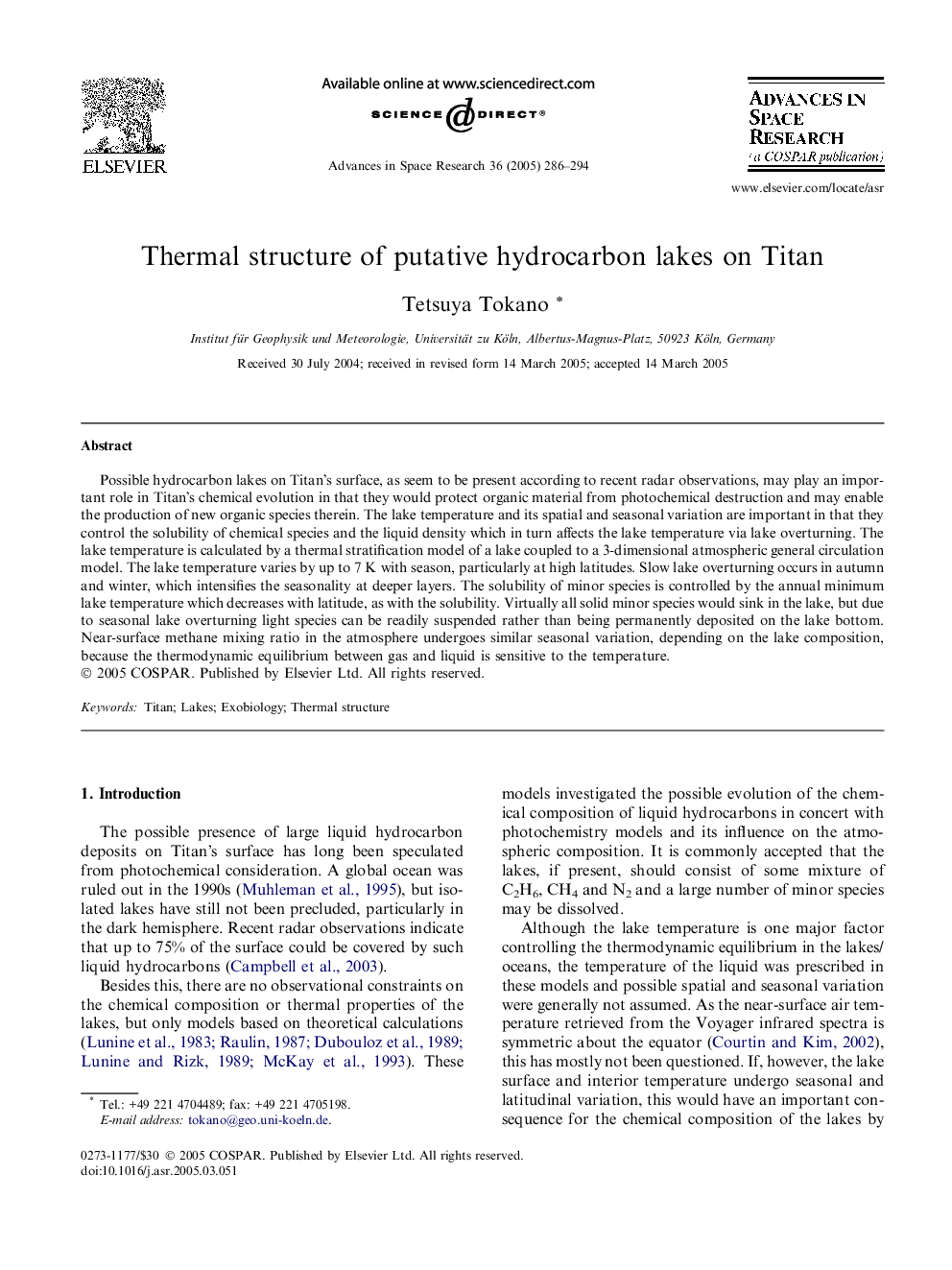| Article ID | Journal | Published Year | Pages | File Type |
|---|---|---|---|---|
| 10696914 | Advances in Space Research | 2005 | 9 Pages |
Abstract
Possible hydrocarbon lakes on Titan's surface, as seem to be present according to recent radar observations, may play an important role in Titan's chemical evolution in that they would protect organic material from photochemical destruction and may enable the production of new organic species therein. The lake temperature and its spatial and seasonal variation are important in that they control the solubility of chemical species and the liquid density which in turn affects the lake temperature via lake overturning. The lake temperature is calculated by a thermal stratification model of a lake coupled to a 3-dimensional atmospheric general circulation model. The lake temperature varies by up to 7 K with season, particularly at high latitudes. Slow lake overturning occurs in autumn and winter, which intensifies the seasonality at deeper layers. The solubility of minor species is controlled by the annual minimum lake temperature which decreases with latitude, as with the solubility. Virtually all solid minor species would sink in the lake, but due to seasonal lake overturning light species can be readily suspended rather than being permanently deposited on the lake bottom. Near-surface methane mixing ratio in the atmosphere undergoes similar seasonal variation, depending on the lake composition, because the thermodynamic equilibrium between gas and liquid is sensitive to the temperature.
Related Topics
Physical Sciences and Engineering
Earth and Planetary Sciences
Space and Planetary Science
Authors
Tetsuya Tokano,
